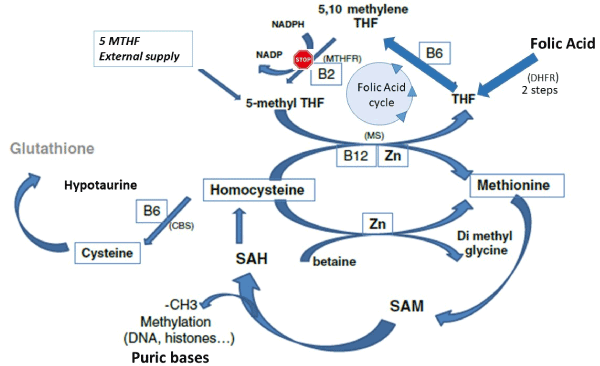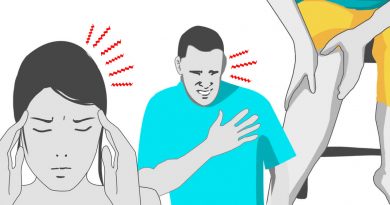MTHFR Mutation and its Testing
The MTHFR gene instructs your body to produce the MTHFR protein, which aids in the absorption of folate. Folate is required for the production of DNA and the modification of proteins in your body.
Why do I need an MTHFR mutation test?
You may need this test if:
- A blood test revealed that your homocysteine levels were greater than normal.
- An MTHFR mutation was discovered in a close cousin.
- You and/or members of your immediate family have a history of heart disease or blood vessel abnormalities.
What is being tested?
Homocystinuria, anencephaly, spina bifida, and other significant genetic illnesses can be caused by mutations or polymorphisms in the MTHFR gene. The MTHFR enzyme is required for the conversion of one type of B vitamin, folate, into another. It’s also involved in the conversion of homocysteine to methionine, a crucial component of many proteins.
Homocysteine levels that are too high indicate that the body isn’t digesting it appropriately. A mutation in the MTHFR gene, which causes homocystinuria, might be one of the causes. While there are at least seven different MTHFR mutations found in people with homocystnuria, only two DNA sequence variants, known as single nucleotide polymorphisms (SNPs), are tested.
C677T and A1298C are the two MTHFR variations, and people can inherit one or both of them. These SNPs cause DNA alterations (mutations) that are linked to lower MTHFR activity and higher homocysteine levels in the blood, thereby increasing the risk of early cardiovascular disease (CVD), thrombosis, and stroke.
C677T is homozygous in around 5-14 percent of the US population, which means they have two copies of the gene. The C677T variation causes the MTHFR enzyme to be less active, reducing its capacity to metabolise folate and homocysteine. Reduced MTHFR enzyme activity delays the homocysteine-to-methionine conversion process and can lead to a buildup of homocysteine in the blood when a person has two copies of the MTHFR One copy of MTHFR. C677T and one copy of A1298C (homozygous) or one copy of MTHFR C677T and one copy of A1298C (compound heterozygous).
Is there anything more I should know about MTHFR testing?
Instead of doing an MTHFR gene test, some health care professionals merely test for homocysteine levels. That’s because whether high homocysteine levels are caused by a mutation or not, therapy is frequently the same.
Treatment:
Treatment is unaffected by MTHFR gene variations alone. If a person’s homocysteine levels are excessive, they should be thoroughly examined to rule out any possible reasons. Having the common variations alone seldom results in extremely high homocysteine levels. People with extremely high homocysteine levels should be checked for additional variables that might impact homocysteine levels, such as:
- Low thyroid hormones (hypothyroidism)
- Chronic conditions i.e., obesity, diabetes, high cholesterol, physical inactivity, high blood pressure
- Medications (atorvastatin, fenofibrate, methotrexate, andnicotinic acid)
- Dietary deficiencies like folate, vitamin B6, vitamin B12
- Smoking
- Advanced age
Treatments and lifestyle adjustments are prescribed according to the patient’s needs. Homocysteine levels can grow in persons with and without MTHFR gene variations if they don’t get enough folate, methylfolate, choline, or B vitamins, as previously stated (B12, B6, and riboflavin).
References:
- https://www.uptodate.com/contents/overview-of-homocysteine.
- http://ghr.nlm.nih.gov/gene/MTHFR.




